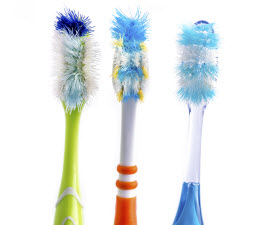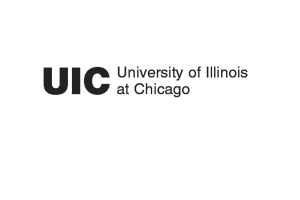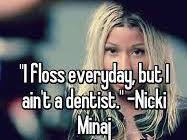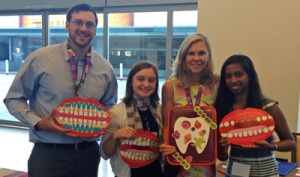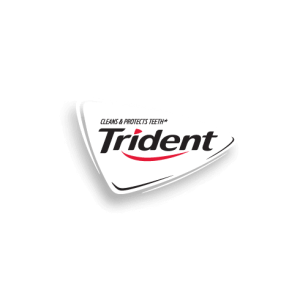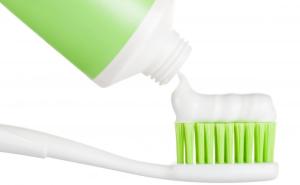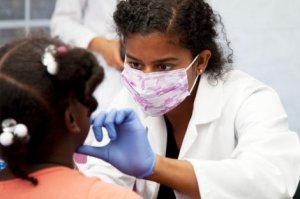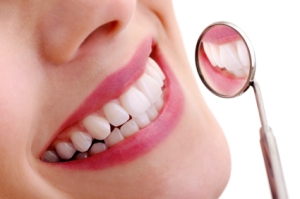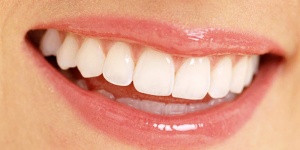Invest in a new toothbrush or a replacement head for your electric or battery-operated toothbrush every three to four months — or sooner if the bristles become frayed.
@thisisuic to develop and test outreach program to improve children’s oral health in #Chicago (via @NewsMedical)
25 SepThe University of Illinois at Chicago will develop and test an outreach program to reduce cavities in Chicago’s low-income and minority infants and toddlers under a five-year, $5 million grant from the National Institutes of Health.
Community health workers will reach out to educate families about oral hygiene at health clinics and WIC centers and in their homes.
“We want to improve the oral health of the child by improving the oral health of the whole family,” said Dr. Molly Martin, associate professor of pediatrics in the UIC College of Medicine. “If the parents or caregivers aren’t practicing good oral hygiene themselves, the chance that the children will take good care of their own teeth is much lower.”
Martin says the success of educational interventions can depend on the environment in which they are delivered.
“Are families more likely to take action if they are reached at home, in the clinic, or at a WIC center?” asks Martin, who is a fellow of the UIC Institute for Health Research and Policy and principal investigator on the NIH grant.
Her team also wants to look at whether a combination of settings has a greater effect.
“We might find that families are more likely to take action if they are reached in the clinic and at home,” she said, “than they are if they are just reached at a clinic.”
The study, called Coordinated Oral Health Promotion Chicago, or CO-OP Chicago, includes UIC researchers in clinical pediatrics, dentistry, and health policy. They will recruit and train six community health workers to talk with 1,500 families in Chicago that have children between the ages of 6 months and 3 years. Families will be followed for two years to evaluate their overall oral health and the incidence of cavities in the children.
Almost half of children 11 years and under have cavities, one of the most common chronic health conditions of childhood, particularly among low-income and minority children. In Chicago, 63 percent of third graders have cavities, and more than half of the cavities go untreated.
Pediatric dentists in the UIC College of Dentistry will develop the training curriculum for the community health workers.
“Improving oral health and access to care for families and children is something we are very excited to be a part of through this grant,” said Marcio da Fonseca, head of pediatric dentistry in the UIC College of Dentistry.
The grant to UIC is one of 10 announced by the NIH’s National Institute of Dental and Craniofacial Research (NIDCR) as part of the new national Multidisciplinary and Collaborative Research Consortium to Reduce Oral Health Disparities in Children.
“Research has shown that individual-level approaches alone are not sufficient to reduce rates of tooth decay and other oral diseases,” said NIDCR program director Ruth Nowjack-Raymer. The consortium’s research projects, she said, “will involve holistic, population-health, and other approaches to take decisive action against oral health disparities at multiple levels of influence, such as families, neighborhoods, and healthcare systems.”
Source: http://www.news-medical.net/news/20150922/UIC-to-develop-and-test-outreach-program-to-improve-childrene28099s-oral-health-in-Chicago.aspx
America’s ToothFairy resources address oral health challenges for children with special needs (via @DentistryIQ)
24 SepAddressing a primary concern among parents of children with special needs, America’s ToothFairy: National Children’s Oral Health Foundation has released an adapted version of its community education kit for use among children with intellectual disabilities. The kit, which includes a hands-on magnetic display board, giant toothbrush, and adapted lessons on toothbrushing, flossing, handwashing, germ transmission, and nutrition, provides suggested modifications and techniques to make daily oral health routines more comfortable and accessible for people with intellectual disabilities.
America’s ToothFairy introduced these resources at the Special Olympics World Summer Games in Los Angeles in July 2015 in collaboration with the Special Olympics Special Smiles program. Special Smiles provides comprehensive oral health care information, free dental screenings, preventive services, oral health education and care, when possible, to Special Olympics athletes. With Spanish and French translations, the kit is readily available for all Special Smiles programs throughout North America.
Practitioners, researchers and students associated with the American Academy of Developmental Medicine and Dentistry (AADMD) were also introduced to the kit at their annual meeting. The AADMD provides a forum for healthcare professionals who provide clinical care to people with neurodevelopmental disorders and intellectual disabilities. Student chapters of the AADMD will use the kit in their educational outreach programs and become participating chapters of Students United with Americas ToothFairy.
“Special Olympics and the American Academy of Developmental Medicine and Dentistry commend America’s ToothFairy for creating these educational kits that help us provide caring education and support for underserved children and youth with intellectual disabilities,” said Dr. Steven P. Perlman, founder and senior global clinical advisor of the Special Olympics Special Smiles program.
“America’s ToothFairy is committed to oral health equality and extending vital oral health education and services to all children in need of care,” said Fern Ingber, America’s ToothFairy president and CEO. “We are very proud to make these resources available to all interested health professionals, volunteers and organizations who serve children with special needs and share our passion to see every child enjoy a healthy smile and good oral health.”
There are an estimated 6.5 million people in the United States with intellectual disabilities. The families of these children often have difficulty accessing care and oral health education, despite the fact that dental care is one of the most prevalent unmet health care needs for children with special needs.
For more information about America’s ToothFairy: National Children’s Oral Health Foundation, please visit www.ncohf.org. To request a kit, please visit www.ncohf.org/resources/toothfairy-101.
Addressing a primary concern among parents of children with special needs, America’s ToothFairy: National Children’s Oral Health Foundation has released an adapted version of its community education kit for use among children with intellectual disabilities. The kit, which includes a hands-on magnetic display board, giant toothbrush, and adapted lessons on toothbrushing, flossing, handwashing, germ transmission, and nutrition, provides suggested modifications and techniques to make daily oral health routines more comfortable and accessible for people with intellectual disabilities.
America’s ToothFairy introduced these resources at the Special Olympics World Summer Games in Los Angeles in July 2015 in collaboration with the Special Olympics Special Smiles program. Special Smiles provides comprehensive oral health care information, free dental screenings, preventive services, oral health education and care, when possible, to Special Olympics athletes. With Spanish and French translations, the kit is readily available for all Special Smiles programs throughout North America.
Practitioners, researchers and students associated with the American Academy of Developmental Medicine and Dentistry (AADMD) were also introduced to the kit at their annual meeting. The AADMD provides a forum for healthcare professionals who provide clinical care to people with neurodevelopmental disorders and intellectual disabilities. Student chapters of the AADMD will use the kit in their educational outreach programs and become participating chapters of Students United with Americas ToothFairy.
“Special Olympics and the American Academy of Developmental Medicine and Dentistry commend America’s ToothFairy for creating these educational kits that help us provide caring education and support for underserved children and youth with intellectual disabilities,” said Dr. Steven P. Perlman, founder and senior global clinical advisor of the Special Olympics Special Smiles program.
“America’s ToothFairy is committed to oral health equality and extending vital oral health education and services to all children in need of care,” said Fern Ingber, America’s ToothFairy president and CEO. “We are very proud to make these resources available to all interested health professionals, volunteers and organizations who serve children with special needs and share our passion to see every child enjoy a healthy smile and good oral health.”
There are an estimated 6.5 million people in the United States with intellectual disabilities. The families of these children often have difficulty accessing care and oral health education, despite the fact that dental care is one of the most prevalent unmet health care needs for children with special needs.
For more information about America’s ToothFairy: National Children’s Oral Health Foundation, please visit www.ncohf.org. To request a kit, please visit www.ncohf.org/resources/toothfairy-101.
Source: http://www.dentistryiq.com/articles/2015/09/americas-toothfairy-resources-address-oral-health-challenges-for-children-with-special-needs.html
Trident Teams Up With Oral Health America To Spread “Smiles Across America” (via @MarketWatch)
22 SepTrident® has been helping Americans maintain good oral health for more than 50 years and, as the original sponsor of Oral Health America’s (OHA) Smiles Across America® (SAA) program, is giving consumers nationwide a chance to help youth in need of oral care.
OHA, a national non-profit organization, working to educate Americans about the importance of dental care to overall health and well-being, launched SAA to provide oral disease prevention services for school-aged children who are uninsured and underserved due to issues of poverty – including lack of resources and transportation barriers. During the week of September 20th, every pack of Trident gum purchased at retailers nationwide will spur a five-cent donation to the SAA program, up to $250,000.
“Trident is committed to helping maintain good oral health and proudly supports SAA as it continues to advance its mission of providing access to oral disease prevention services for children,” said David Greci, Senior Associate Brand Manager, U.S. Gum. “We hope purchasing Trident gum this week is a simple way people can help support this worthwhile cause.”
In 2004, Trident provided funding to help launch SAA and support oral disease prevention services for children. Trident® Sugar Free Gum continues to be a major supporter of SAA as part of an ongoing commitment to the advancement of oral care in America’s youth.
“We are honored to once again have the support from Trident as we bring essential oral health care and education to children through SAA,” said OHA President and CEO Beth Truett.
To learn more about SAA, please visit www.oralhealthamerica.org. For more information on Trident, visit Facebook.com/Tridentgum.
About TRIDENT Gum TRIDENT gum, the first national sugar free gum, has long been a pioneer in providing oral care benefits to consumers. TRIDENT is one of Mondel International’s “Billion Dollar” brands, and is loved by a global community of thirteen million Facebook fans. Visit www.facebook.com/tridentgum.
About Mondel International Mondel International, Inc. MDLZ, +0.00% is a global snacking powerhouse, with pro forma 2014 revenue of more than $30 billion. Creating delicious moments of joy in 165 countries, Mondel International is a world leader in biscuits, chocolate, gum, candy and powdered beverages, with billion-dollar brands such as Oreo, LU and Nabisco biscuits; Cadbury, Cadbury Dairy Milk and Milka chocolate; Trident gum and Tang powdered beverages. Mondel International is a proud member of the Standard and Poor’s 500, NASDAQ 100 and Dow Jones Sustainability Index. Visit www.Mondelzinternational.com/ or follow us on Twitter at http://www.twitter.com/MDLZ.
About Oral Health America OHA’s mission is to change lives by connecting communities with resources to drive access to care, increase health literacy,and advocate for policies that improve overall health through better oral health for all Americans, especially those most vulnerable. Through Smiles Across America®, which serves 460,000 children annually, the Wisdom Tooth Project®, which reaches tens of thousands of older adults, and the Campaigns for Oral Health Equity, which prioritize oral health alongside other chronic diseases, OHA helps Americans of all ages to have a healthy mouth and to understand the importance of oral health for overall health. For more information about Oral Health America, please visit www.oralhealthamerica.org.
Source: http://www.marketwatch.com/story/trident-teams-up-with-oral-health-america-to-spread-smiles-across-america-2015-09-21
Daily Dental Tip: Proper Oral Health Equipment
19 SepUse a fluoride toothpaste and a soft-bristled toothbrush that fits your mouth comfortably. Consider using an electric or battery-operated toothbrush, which can reduce plaque and a mild form of gum disease (gingivitis) more than does manual brushing. These devices are also helpful if you have arthritis or other problems that make it difficult to brush effectively.
UCSF Awarded Nearly $21 Million to Reduce Children’s Oral Health Disparities (@UCSF)
19 SepUC San Francisco has long been a leader in preventing children’s oral disease and promoting children’s oral health, especially in low-income and minority populations. Now, supporting this ongoing work, the National Institutes of Health has awarded the UCSF School of Dentistry three research awards potentially totaling nearly $21 million.
These three awards are part of 10 research cooperative agreements awarded nationwide by the NIH aimed at eliminating inequities in access to care and improving the oral health of children. The awards of up to five years each support the Multidisciplinary and Collaborative Research Consortium to Reduce Oral Health Disparities in Children, a new initiative of the NIH’s National Institute of Dental and Craniofacial Research (NIDCR), with funding phased in as milestones are achieved.
”Although significant progress has been made in discovering ways to prevent rampant tooth decay in preschoolers, these new awards will allow for evaluating innovative ways to reduce decay among those populations most at risk,” said John D.B. Featherstone, PhD, MSc, dean of the UCSF School of Dentistry and professor in the Department of Preventive and Restorative Dental Sciences.
Center to Address Disparities in Children’s Oral Health (CAN DO)
Previously, UCSF was awarded two consecutive seven-year NIDCR awards totaling more than $35 million, creating and expanding the UCSF Center to Address Disparities in Children’s Oral Health (known as CAN DO). The three new UCSF awards comprise “CAN DO3.”
CAN DO has conducted transdisciplinary research that includes several large randomized controlled clinical prevention trials together with colleagues at UCLA and communities in San Francisco and San Diego County at high risk for caries in young children. The center is directed by Stuart Gansky, DrPH, John C. Greene Professor of Primary Care Dentistry in the Division of Oral Epidemiology and Dental Public Health and vice chair for research in the Department of Preventive and Restorative Dental Sciences in the UCSF School of Dentistry.
CAN DO researchers are studying ways to improve the dental health of groups that have historically had worse oral health. The primary focus is preventing tooth decay or early childhood caries in young children, as well as eliminating health disparities among low-income individuals and communities, through sound research, evidence-based practices and policy changes.
”This planned research builds on the body of work of the NIDCR-funded Early Childhood Caries Collaborating Centers, including UCSF’s CAN DO,” Gansky said. ”We are grateful for the opportunity to work on these transdisciplinary research projects because this work has real potential to impact the health triple aim of better care, better health status and lower health care costs.”
Coordinating Center to Help Eliminate/Reduce Oral Health Inequalities in Children
Funded at $11 million, the Coordinating Center to Help Eliminate/Reduce Oral Health Inequalities in Children (CC HEROIC) will provide collaborative research and coordinating center expertise and services to nine NIDCR-funded community-engaged projects. The goal is to enable projects to assess multilevel interventions, programs or policies that will reduce or eliminate oral health disparities in diverse, vulnerable populations of children ages 0-21.
Specifically, CC HEROIC will provide clinical and scientific expertise, including optimizing study designs, instrumentation and data analysis plans; informatics and project management, including secure data collection and management systems, data quality assurance/control, project and safety monitoring, and progress reporting; research staff training as well as training and calibrating project oral health examiners; and coordination of the consortium’s nine collaborating teams across the United States.
Principal investigators are Gansky and Steven Gregorich, PhD, professor of medicine and dentistry at UCSF.
Improving Dental Care Quality and Outcomes Through Evidence-Based Prevention and Treatment
The second NIDCR award of up to $4.8 million is to evaluate the impact of a standardized evidence-based prevention and treatment program on reducing disparities, providing better overall population health, improving the care experience and lowering per capita cost.
Oregon was chosen for this research project because children ages 0-20 in the state from lower-income households have a substantially higher dental caries rate than children from higher-income households. They also have nearly twice the untreated decay rate and more than twice the rate of rampant decay.
This research project will evaluate the disparity reduction and oral health improvement potential of innovative standardized caries prevention approaches implemented in Willamette Dental Group offices in Oregon. It also will assess organizational sustainability, cost and Medicaid policy implications.
The multidisciplinary research team is also multi-institutional, with researchers joining from the Skourtes Institute, Williamette Dental Group, Harvard University, The University of Texas Health Science Center at Houston, and Oregon Health & Science University.
Principal investigators are Elizabeth Mertz, PhD, MA, assistant professor, and Joel White, DDS, MS, professor, of the Department of Preventive and Restorative Dental Sciences in the UCSF School of Dentistry.
Behavioral Economics for Oral Health Innovation
The BEhavioral EConomics for Oral health iNnovation (BEECON) project, funded at up to $4.8 million, will use various methods to design incentives that promote caregiver behaviors to prevent caries in young children, assess child oral health outcomes and evaluate cost-effectiveness of the intervention. The project will enroll underserved, low-income Hispanic/Latino families with children 0-5 years of age in Early Head Start and Women, Infants, and Children (WIC) supplemental nutrition programs in Los Angeles County.
Previous studies have shown that mere health education is insufficient to make a lasting impact on health behaviors. Despite growing evidence that small, cost-effective interventions leveraging theories and insights from behavioral economics can promote behavior change, this will be the first time they are applied to oral health interventions. The multidisciplinary research team is comprised of UCSF and UCLA investigators.
Principal investigators are Gansky and James Kahn, MD, MPH, professor of epidemiology and biostatistics, of UCSF and Francisco Ramos-Gomez, DDS, MS, MPH, professor of pediatric dentistry, of UCLA and UCSF.
The NIDCR is the nation’s leading funder of research on dental, oral and craniofacial health.
UC San Francisco (UCSF) is a leading university dedicated to promoting health worldwide through advanced biomedical research, graduate-level education in the life sciences and health professions, and excellence in patient care. It includes top-ranked graduate schools of dentistry, medicine, nursing and pharmacy, a graduate division with nationally renowned programs in basic, biomedical, translational and population sciences, as well as a preeminent biomedical research enterprise and two top-ranked hospitals, UCSF Medical Center and UCSF Benioff Children’s Hospital San Francisco.
Source: https://www.ucsf.edu/news/2015/09/131656/ucsf-awarded-nearly-21-million-reduce-childrens-oral-health-disparities
#Vermont: Bennington Select Board establishes Oral Health Commission (via @banner_news)
15 SepThe Select Board on Monday voted to establish an Oral Health Commission, which will act in an advisory capacity to the board.
The board will appoint members to the six-person commission with a limit on any person serving more than two three-year terms. Eventually, all of the seats’ terms will be three years, but at first, two will be three years, two will be two years, and two will be one year. Commission members must be Bennington residents, and those interested can submit letters of interest to the town manager’s office no later than noon on Sept. 21. Board Chairman Thomas Jacobs said that one seat will be held by a dentist, and that if only three people the board felt were qualified applied, then they would only appoint those three. “We’re not going to fill it just to fill it,” he said.
Jacobs said at the first reading of the proposal, at the board’s Aug. 24 meeting, that “A couple months ago, folks came forward and asked that there be consideration from the board for the establishment of a committee, designated by the board of selectors, to address what is understood to be an important, and difficult, and serious oral health issue in our community. Jacobs said his initial idea was to create a subcommittee of the select board, made up of Donald Campbell, Michael Keane, and himself, that would address the issue. However, he said, that committee would have been nothing more than a continuation of the select board, when the goal was to have a “group of citizens that have recognition by the select board to undertake an advisory capacity to recommend to the selectors ways to deal with what is a serious health issue.

”
Jacobs said that the commission will be reviewed in three years, and, if it is not found to be accomplishing the goals set forward, it could be decommissioned. The select board currently has not dedicated any funding to the commission, although Jacobs said that funding requests would be dealt with as they were made.
The commission is not related to the Bennington Oral Health Coalition, the group that led the fight to fluoridate Bennington’s water earlier this year, and Jacobs made it clear that, while members of both that group and the Bennington Citizens Against Fluoridated Water who opposed them can apply for positions on the commissions as individuals, they will not be allowed to serve as representatives of those groups.
When Justin Corcoran said that he was concerned that the commission could become yet another push for water fluoridation, which he said the a vast majority in the community did not want, Jacobs responded, “My understanding is that the issue is much broader than fluoridation.” He said that it would be up to the select board to make sure that one side of that debate or the other didn’t have too much influence on the commission. Corcoran was also concerned that the select board could fund the commission without a public vote.
Mary-Lou Albert, a member of the Citizens Against Fluoridated Water, spoke at both the Aug 24. and Sept. 14 meetings. “The board shouldn’t be involved in health issues,” she argued, “the hospital should. The board should be involved in roads, and police, and water and sewer, and all that, not health issues.”
“I respectfully disagree with you,” said Jacobs, “Oral health goes a long way towards the economic health of this community. Don’t just say that this board is in charge of roads and making sure the water’s running, it’s a broader responsibility that we have, and this board doesn’t take that role lightly.”

